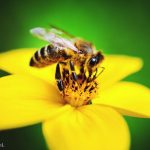Honeybees are crucial to the growth of many of the foods we eat. But their populations are in steep decline. Many experts think that neonicotinoids, a class of pesticides, are having acute and chronic effects on honeybees. These chemicals are slow to break down, meaning they build up in the environment. A new nationwide study released by the U.S. Geological Survey shows widespread detection of neonicotinoid insecticides in U.S. streams. At least one neonicotinoid was found in 53% of the stream samples collected around the country. Larissa Walter, pollinator campaign director at Center for Food Safety said in a statement, "It is clear that the problems with widespread uses of neonicotinoids extend well beyond the impacts to pollinators. This study shines a light on the alarming … [Read more...]
Spokane, WA Ends Use of Neonicotinoids
The city council of Spokane, Washington has voted to discontinue the purchase and use of neonicotinoids on city property. Those pesticides are linked to honey bee colony collapse disorder. Pollinators are integral to agriculture. Since honey bees pollinate 30% of our food crops, Council President Ben Stuckart said in a statement, "this ordinance simply says Spokane prioritizes the protection of our food supply over the ornamental use of pesticides." Other cities that have banned these chemicals or are looking for alternatives include Eugene, Oregon and Seattle, Washington. Beyond Pesticides applauds this move and states that Spokane is part of a growing movement to protect pollinators. The European Union has a two-year moratorium on the pesticides. And just this week, President Obama … [Read more...]





